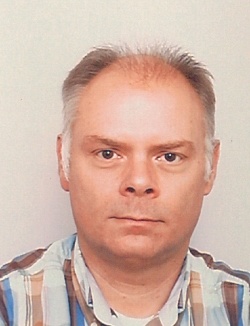MRSA - Keeping up with the neighbours
Report: Meike Lerner
The border between Germany and the Netherlands in the so-called EUREGIO region is of no particular importance in the daily life of the people who live there. Every day, thousands commute between towns and cities in both countries, to work, shop or even receive medical treatment. The latter, however, presents Dutch hospitals with a problem.

Whilst multi-resistant pathogens have been almost eradicated in the Netherlands, Germany has not yet been able to get halt the spread of, for instance, MRSA. Therefore, patients already treated in Germany present a potential risk.
This was enough for Ron Hendrix MD PhD, at the Laboratory Microbiology in Twente/Achterhoek and Dr Alexander W Friedrich, of the Institute for Hygiene at University Hospital Muenster, to collaborate to find a solution. Their meeting resulted in the MRSA-net project. Now successfully completed, the results are in utilised and complemented in the large-scale project EURSafety Health-net.
‘Within the context of the EUREGIO MRSA-net project, which broadly speaking included the regions Muensterland and Twente, we initially looked at where the real problems were, and we made some surprising discoveries. On the one hand, there are big geographical discrepancies in the spread of MRSA in Germany. In Muensterland the spread was quite small compared to regions such as Berlin, Munich or the Ruhr. On the other hand, talks with the Robert-Koch-Institute showed that the guidelines on the fight against MRSA are identical in both countries. Germany even has a legal framework for their implementation, whilst the guidelines in the Netherlands are only based on agreements,’ Ron Hendrix told European Hospital.
The reasons why Germany looks so bad, despite the same prerequisites, are obvious to this expert: ‘One significant difference is that Germany – just like many other European countries – has no policy on antibiotics. In the Netherlands we have always prescribed very few antibiotics, and when we do prescribe them we use old style types, such as penicillin. This is very different in the case of our neighbours, where patients demand antibiotics for any old cold and doctors then prescribe the very latest generation of drugs available.
‘Apart from the treatment costs involved in this type of strategy the resulting resistancies are not even being considered when it comes to fighting MRSA,’ he continued. ‘The focus in German hospitals, if any, is on hygiene. The second important difference is that existing guidelines are often simply ignored.’
MRSA-net therefore initially aimed to sensitise hospitals to this subject and to capture and quantify the respective problems through screening procedures. The 44 German hospitals involved have committed themselves to observing these measures, which are being continuously checked, and they participate in a quality certification scheme.
‘The complete results will only be published around the end of this year, but we can already talk about success, because the figures show that the number of MRSA pathogens grown in blood cultures has decreased significantly,’ said Dr Hendrix.
Based on these experiences the EurSafety Health-net was set up towards the end of last year, a project that covers the areas along the entire course of the border as well as Belgium. 340 hospitals are participating.
Dr Hendrix added: ‘In the case of EurSafety Health-net an important focus is on antibiotics management, next to hygiene. All hospitals, surgeries or even pharmacies that want to obtain the new certification must commit themselves to reducing the use of antibiotics considerably. Additionally, we don’t only focus on MRSA, because we have found that the same patients are also prone to ESBL or multi-resistant tuberculosis germs. In five years time, when the project finishes, we hope to have eradicated multi-resistant germs in the region just as they have been in the Netherlands – certainly a realistic prospect.’
07.07.2010




